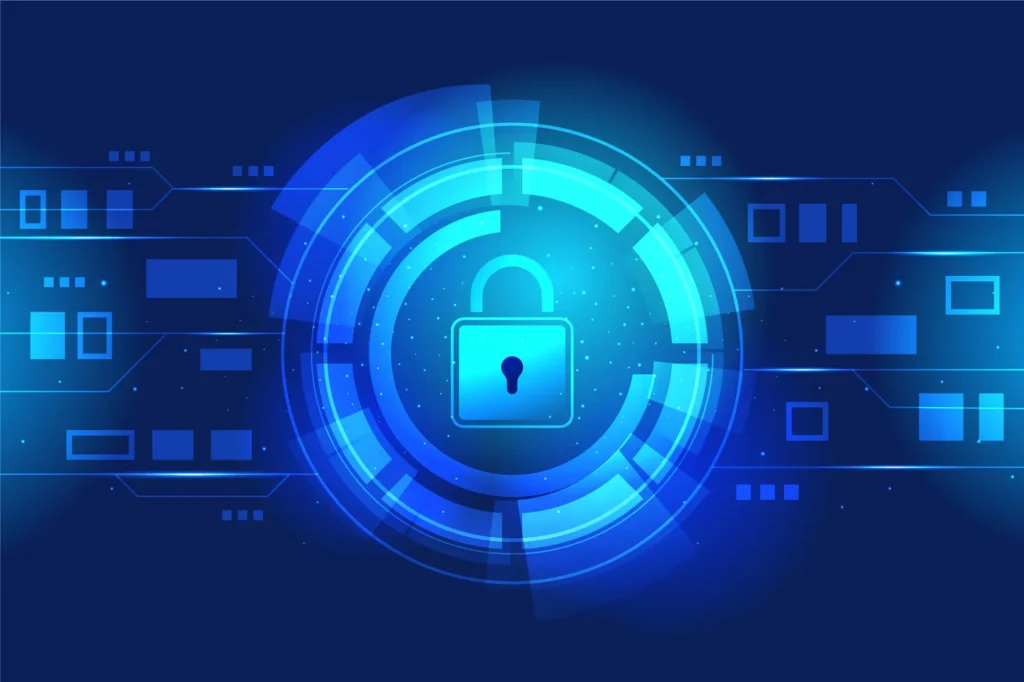In today’s digital age, cyber security has become more critical than ever before. With the increasing reliance on technology for various aspects of our lives, the risk of cyber-attacks continues to grow. Here, we delve into five reasons why cyber security is paramount in safeguarding our online activities and personal information.
Table of Contents
Key Points
Growing Threat of Cyber Attacks: As society becomes increasingly dependent on technology for various aspects of life, the threat of cyber-attacks grows. From banking to online gaming, the exchange of information and money online creates ample opportunities for cybercriminals.
Sophisticated Hackers: Cybercriminals are becoming more sophisticated, making it essential for online companies to keep their cybersecurity up to date. Well-funded hackers can easily breach websites with weak security and have the tools to attempt attacks on sites with strong cybersecurity.
Personal Privacy: While monetary loss is a significant concern for online transactions, the loss of personal information is equally damaging. Cybercriminals seek to obtain various details such as email addresses, telephone numbers, postal addresses, and passport details, which can be sold or used for fraudulent activities.
Business Continuity: The ability for businesses to operate online 24/7 is a significant benefit, but it also exposes them to potential cyber threats. Should any aspect of a business’s online operations be attacked, it could halt the entire business, leading to substantial revenue losses. Cybersecurity is crucial to ensure business continuity.
Trust: With numerous options available in all aspects of life, consumers are quick to shift their trust if a company falls victim to a cyber-attack. Any loss of trust due to a cyber-attack could potentially lead to the downfall of a business, highlighting the critical importance of cybersecurity in today’s digital landscape.
Growing Threat of Cyber Attacks
The primary reason why cyber security is more important than ever before is the escalating threat of cyber-attacks. As our dependence on technology deepens, from banking and trading to shopping and gaming, there are numerous avenues for information and financial transactions to take place online. A prime example is iGaming, where the sheer number of gambling websites and the volume of online transactions have heightened the risk of cyber-attacks.
Top online casinos, such as Razed Casino, have implemented stringent security measures to protect user details during account creation and transactions. At Razed, the “assurance of secure and prompt withdrawals” underscores the priority placed on cyber security to thwart potential attacks.
Sophisticated Hackers
Hackers are continuously evolving, and becoming increasingly sophisticated, which places an even greater emphasis on cyber security. The skill set of well-funded hackers enables them to easily breach websites with weak security measures. Moreover, they possess the tools to attempt attacks on sites equipped with strong cyber security. Thus, staying up-to-date with the latest cyber security measures is vital for online companies to ensure they remain one step ahead of hackers.
Personal Privacy
While the loss of money remains the primary concern for individuals engaging in online transactions, the value of personal information cannot be understated. Cybercriminals are eager to obtain any details they can, ranging from email addresses to telephone numbers, postal addresses, and even passport details. An email address can be sold to the highest bidder, while documents such as passports can be forged and sold on the dark web. While monetary loss is undoubtedly damaging, the loss of personal information can have far-reaching consequences.
Business Continuity
The advent of online business has enabled operations to continue 24/7. Many brick-and-mortar businesses utilize the Internet for various aspects of their work, including employee and payment details, transactions, and stock checking. Any cyber-attack targeting an online aspect of a business could bring operations to a grinding halt, resulting in substantial revenue losses. In the modern world, where business never stops, cyber security is more critical than ever to ensure smooth operations.
Trust
Consumers today have a plethora of options across all aspects of life, whether it be work, shopping, dining, traveling, or healthcare. If a potential customer learns that a company has fallen victim to a cyber-attack resulting in the loss of confidential data, there are countless other businesses they can turn to. Competition is fierce, and any loss of trust due to a cyber-attack could potentially force a company out of business. This underscores the immense importance of cyber security in today’s digital landscape.
Conclusion
In conclusion, cyber security is paramount in safeguarding our online activities and personal information. With the growing threat of cyber-attacks, the sophistication of hackers, and the value of personal privacy and business continuity, investing in robust cybersecurity measures is no longer an option but a necessity. It is the key to maintaining the trust and ensuring the smooth functioning of businesses and online activities in an increasingly digital world.
Read More Articles
- Astra Space’s Financial Struggles: A Close Brush with Bankruptcy
- Introducing the Xogdor Rocket to the Military Realm
- The Formation of the LEO Owner Operators Affinity Group
- Expanding Satellite-to-Smartphone Connectivity
- Navigating Privacy and Safety in Adult Webcam Streaming
- Choosing Between Open Source and Proprietary LLMs
- Rethinking Food Packaging for a Sustainable Future
- Mastering Typography in Web Design
- Exploring Typography Trends for Digital Design in 2024
- Unlocking Sustainable Economic Growth Through Innovation
- Navigating the Financial Landscape of Executive Education and MBA Programs
- Understanding Information Technology: The Backbone of Modern Business
- Understanding Algorithms: Definition, Functionality, and Real-Life Applications
- Understanding Machine Learning: A Comprehensive Exploration
- Unlocking the Power of Machine Vision: Revolutionizing Industries
- Unlocking the Power of Expert Systems: Enhancing Decision-Making with AI
- Unlocking the Power of Natural Language Processing
- Unlocking the Secrets of Artificial Intelligence
- Optimizing Logistics with AI: Revolutionizing Efficiency in Package Routing
Frequently Asks Questions
What is Cyber Security and why is it important?
Cyber Security is the practice of protecting computer systems, networks, and data from digital attacks. It encompasses various technologies, processes, and practices designed to safeguard against unauthorized access, data breaches, and cyber threats. It is crucial because in today’s digital age, virtually every aspect of our lives relies on computers and the internet, making us vulnerable to cyber-attacks that can result in financial loss, identity theft, and damage to critical infrastructure.
What are the common types of cyber threats?
Common types of cyber threats include malware (such as viruses, worms, and ransomware), phishing attacks, DDoS (Distributed Denial of Service) attacks, insider threats, and advanced persistent threats (APTs). Each of these threats poses unique risks to individuals, organizations, and nations, targeting vulnerabilities in systems and exploiting human behavior.
How can individuals protect themselves from cyber threats?
Individuals can protect themselves from cyber threats by practicing good cyber hygiene, which includes using strong, unique passwords, enabling two-factor authentication, keeping software and security patches up to date, being cautious of suspicious emails and links, and regularly backing up important data. Additionally, using reputable antivirus software and being mindful of privacy settings on social media platforms can enhance personal cyber security.
What are the key components of a robust cybersecurity strategy for businesses?
A robust cyber security strategy for businesses typically includes several key components: risk assessment and management, employee training and awareness programs, access control and authentication measures, network and endpoint security solutions (such as firewalls, antivirus software, intrusion detection/prevention systems), data encryption, incident response and disaster recovery plans, and compliance with relevant regulations and standards (such as GDPR, HIPAA, PCI DSS).
How does encryption contribute to cyber security?
Encryption is a fundamental tool in cyber security that involves encoding information in such a way that only authorized parties can access it. It helps protect sensitive data from unauthorized access or interception by encrypting it into a scrambled format that can only be decrypted with the appropriate decryption key. By implementing encryption protocols across communication channels, storage systems, and devices, organizations can safeguard their data from cyber threats.
What is the role of Artificial Intelligence (AI) in cyber security?
Artificial Intelligence plays a significant role in cyber security by enhancing threat detection, response, and mitigation capabilities. AI-powered tools and algorithms can analyze vast amounts of data to identify patterns indicative of cyber-attacks, predict potential vulnerabilities, and automate incident response processes. Machine learning algorithms can also adapt and improve over time, helping security systems stay ahead of evolving cyber threats.
What are Zero-Day Exploits and how can they be mitigated?
Zero-day exploits refer to vulnerabilities in software or hardware that are unknown to the vendor and have no available patch or fix. Cybercriminals often exploit these vulnerabilities to launch targeted attacks before a security patch is developed, hence the term “zero-day.” Mitigating zero-day exploits requires proactive measures such as using intrusion detection systems to monitor for suspicious behavior, employing network segmentation to contain potential breaches, and implementing security measures like application whitelisting and sandboxing to limit the impact of unknown threats.
What is the Dark Web and how does it relate to cyber security?
The Dark Web is a part of the internet that is intentionally hidden and inaccessible through standard web browsers. It is often associated with illicit activities, including the sale of stolen data, drugs, weapons, and hacking tools. From a cyber security perspective, the Dark Web poses a significant threat as it provides a platform for cybercriminals to exchange information, collaborate on attacks, and sell compromised credentials and sensitive information. Monitoring the Dark Web for mentions of an organization’s assets or personnel is essential for proactive threat intelligence and incident response.
How does Cyber Security intersect with Internet of Things (IoT) devices?
The proliferation of Internet of Things (IoT) devices, such as smart appliances, wearable gadgets, and industrial sensors, introduces new cybersecurity challenges. Many IoT devices lack robust security features, making them vulnerable to hacking and exploitation. Cyber attackers can compromise IoT devices to launch large-scale DDoS attacks, spy on users, or infiltrate corporate networks. Securing IoT devices involves implementing encryption, authentication mechanisms, and regular firmware updates to mitigate potential risks and protect against unauthorized access.
What is the role of government in cyber security?
Governments play a crucial role in cyber security by establishing regulations, standards, and frameworks to ensure the protection of critical infrastructure, national security, and citizen privacy. They also facilitate information sharing and collaboration between public and private sector entities to address cyber threats effectively. Additionally, governments may engage in cyber diplomacy to establish norms of responsible behavior in cyberspace and coordinate international efforts to combat cybercrime and cyber warfare.


